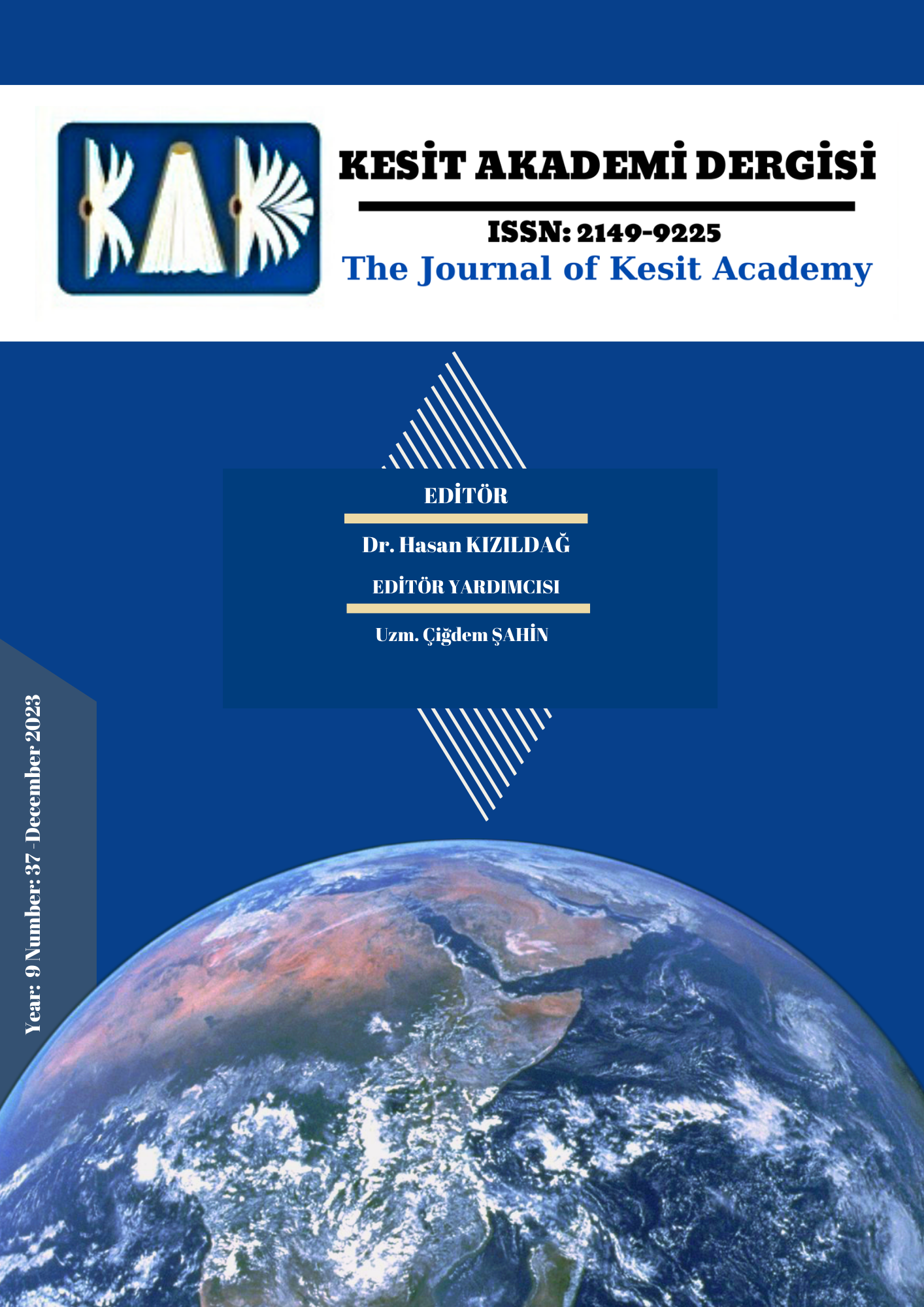Author :
Abstract
Bu çalışmada, şiirin biçimsel yapısı, şiir dilindeki anlamsal unsurlar ve anlam dizileri incelenecektir. Örneklem evreni Crépuscule du matin/ Sabahın alacakaranlığı şiirinden alınan ve içinde Paris tablolarına ilişkin anlam ve uzantılarının bulunduğu dizelerdir. Yazarın amacı, şiirsel bağlamın bir işlevi olarak şiirin kendine özgü dilini çözümlemektir. Bu çalışma, ilk olarak kent imgeleriyle bezeli, Parisli işçilerin portresine odaklanacak. Ardından, fiillerin semantik sonuçlarının incelenmesiyle, abartılı benzetmelerle donatılmış dil akşamın simgesel anlamıyla eşleştirilecek ve alacakaranlık zamanı insanlar için bu şiirsel uzama özgü nitelikleriyle örtük bir şiddet uzamı olarak ele alınacaktır. Bu çalışma son olarak, yoksulluğun betili boyutunun kavramsal ve özel durumdaki görünümünün okuması üzerine odaklanacaktır. Baudelaire, Crépuscule du matin (sabahın alacakaranlığı) başlıklı şiirinde geceyi suçun, düzensizliğin ve kaotik kargaşanın olduğu bir uzam olarak gösterir. Böyle bir atmosferde ruhunu madde engelinden kurtararak mutlak olanı bulmak olanaksızdır; çünkü her yerde yalnızlık, acı ve can sıkıntısının etkisi sürmektedir. Bu kent uzamında gördüğü her kişi veya nesne ona insanlığın sefil durumunu anımsatır. Kentin sefaletini gören şair, gecenin derin sessizliğinin duyarlı ruhunu yatıştırmaktan ve can sıkıntısını gidermekten çok uzak olduğunun ayırdına varır. Gece ya da gündüz atmosferi ona nesnenin, zamanın ve uzamın korkunç ve karamsar yüzüyle karşılaşmak zorunda olduğunu anımsatır. Yalnızlığını ve dünyanın acımasızlığını unutmak için Paris'in kalabalığına karışmak ister ama hiçbir şey ruhunu yatıştıramaz; çünkü her yanda bir çirkinlik ve kötülük art düzlemi baskındır. İçinde bulunduğu kent, kendi iç sefaletini yansıtan trajik bir aynadır. Her yerde sefahat ve sefalet görür ve gözlerini ovuşturan karanlık Paris, aletlerini kapmış, yaşlı ama çalışkan bir adam olarak gösterilir.
Keywords
Abstract
In this study, the formal structure of the poem and the psycho-semantic elements and sequences of meaning in the language of poetry will be analyzed. The sample universe is the lines taken from the poem in question, in which there are meanings and extensions related to morning twilight. The aim of this article is to express the particular language of the poem as a function of the context in which signs develop. This study will first focus on the portrait of Parisian workers, which is imbued with urban imagery. Then, by examining the semantic implications of the verbs, the language of exaggerated metaphors will be matched with the symbolic meaning of the evening, and the twilight time will be treated as a space of implicit violence for humans, with the qualities specific to this poetic space. Finally, the paper will focus on a reading of the conceptual and particular case of the concrete dimension of poverty. In the poem morning twilight, he sees night as a place of crime, disorder and chaotic turmoil. It's impossible in such an atmosphere to free one's soul from the obstacle of matter to find the absolute, because loneliness, anguish and boredom reign everywhere. In this poetic middle, everything he sees in this world reminds him of the miserable human condition. Having seen earthly misery, the poet finds that the eternal silence of night is far from soothing to his sensitive soul, and far from consoling his boredom. The nocturnal or diurnal atmosphere reminds him that he is condemned to the slavery of matter, time and space. To forget his loneliness and the cruelties of the world, he wants to mingle with the crowds of Paris, but nothing can enchant his spirit because a decor of sadness and ugliness dominates everywhere. The city he wanders through is a tragic mirror reflecting his own inner misery. He sees debauchery and misery everywhere, and dark Paris, rubbing his eyes, grabbed his tools, a laborious old man.





